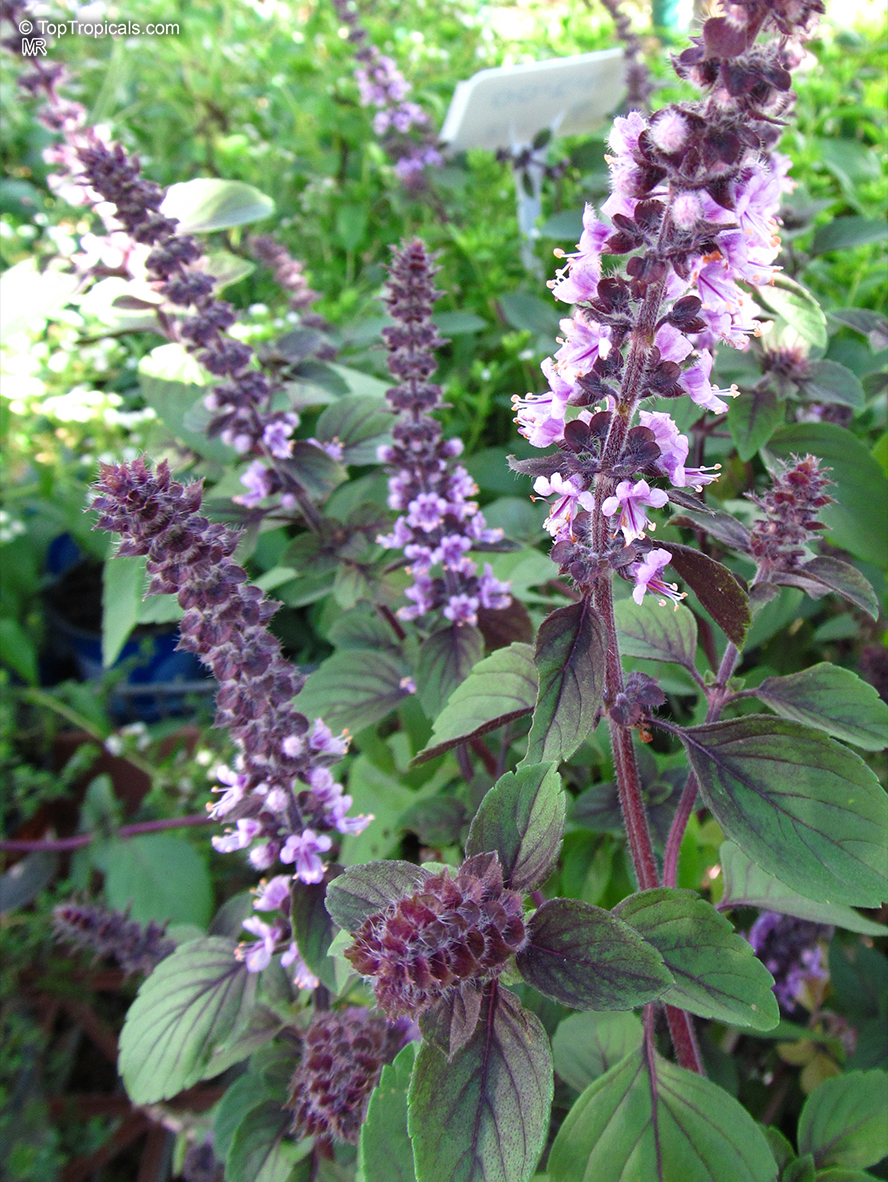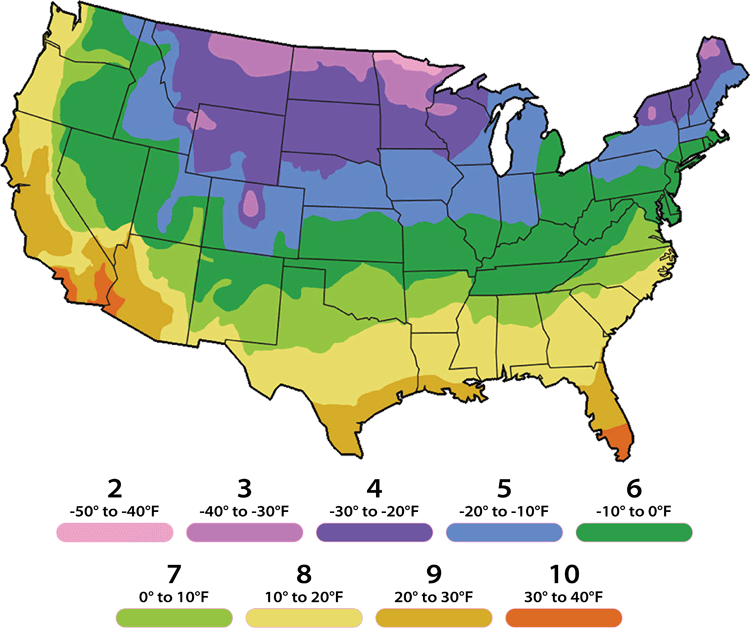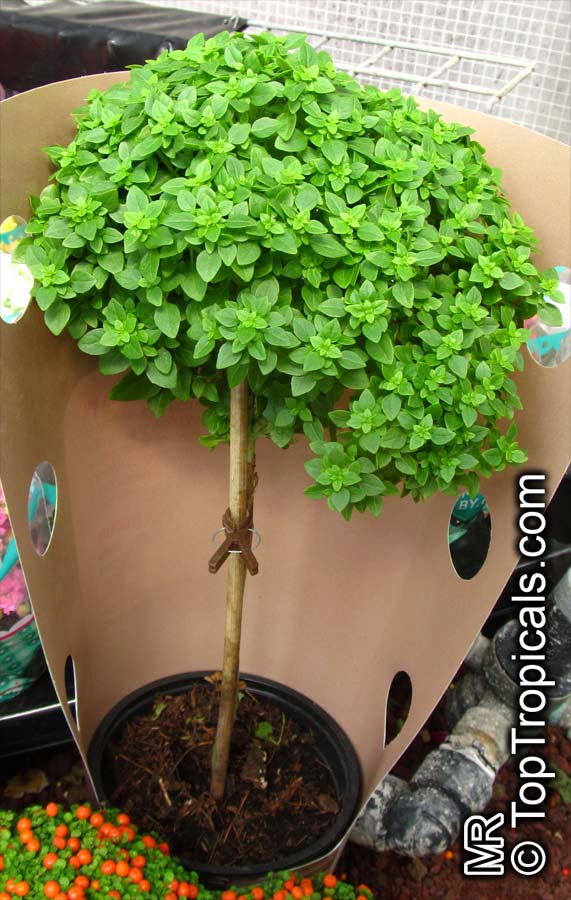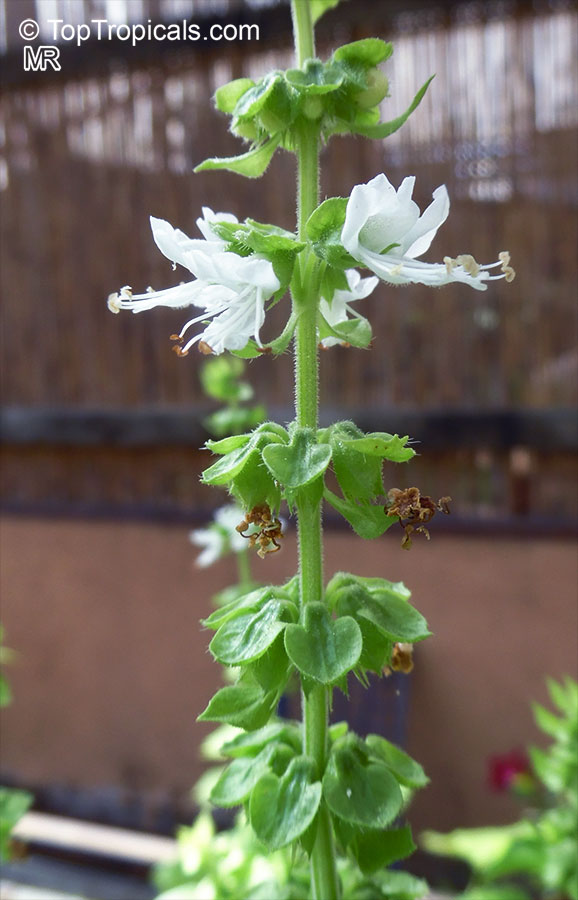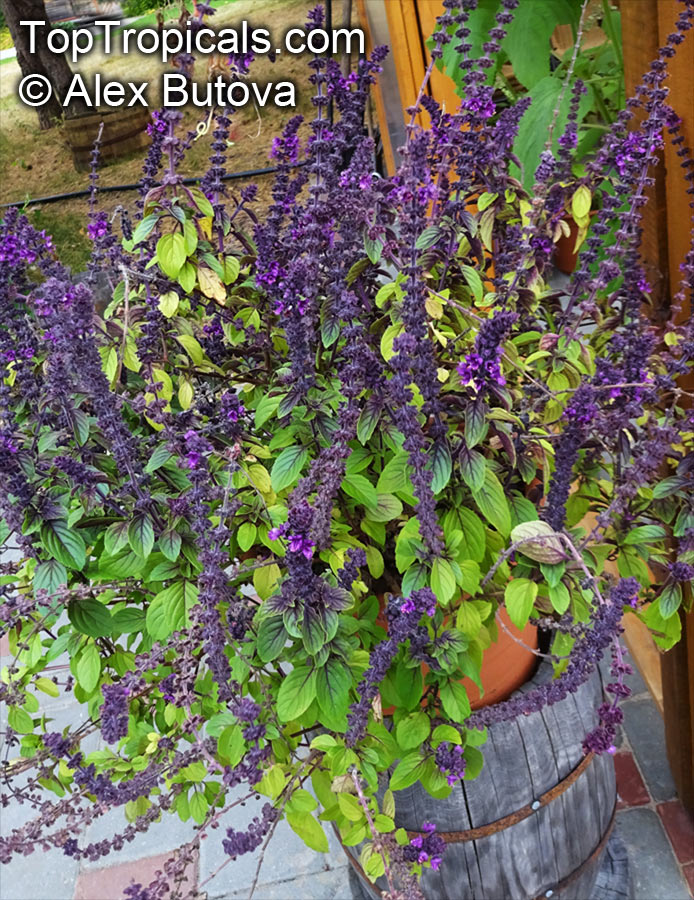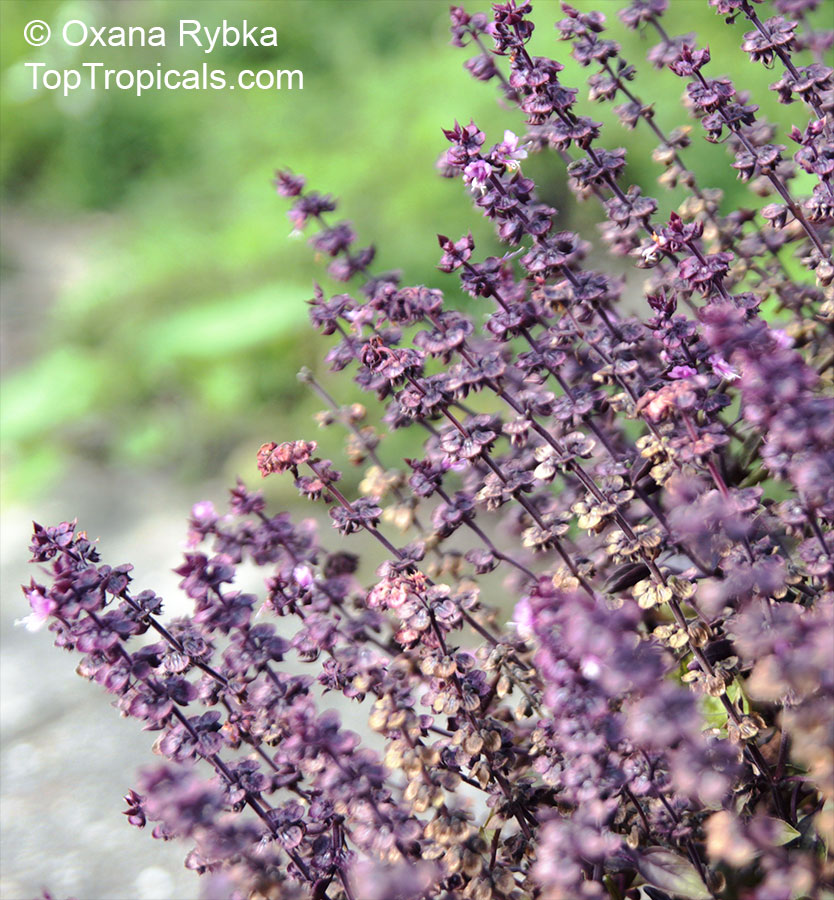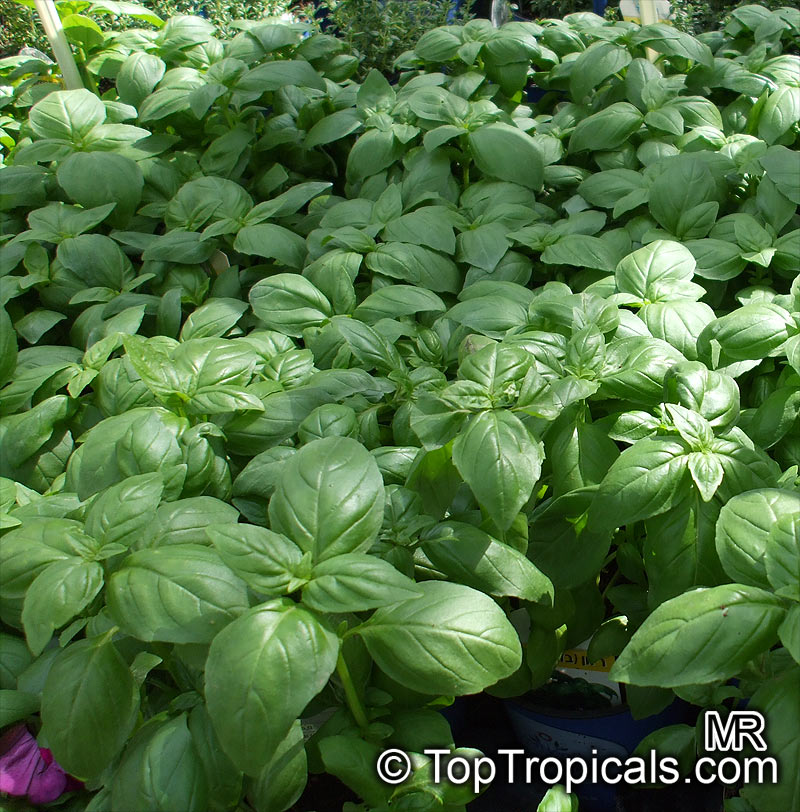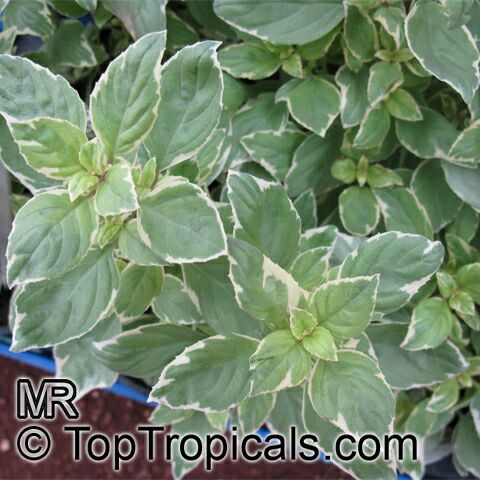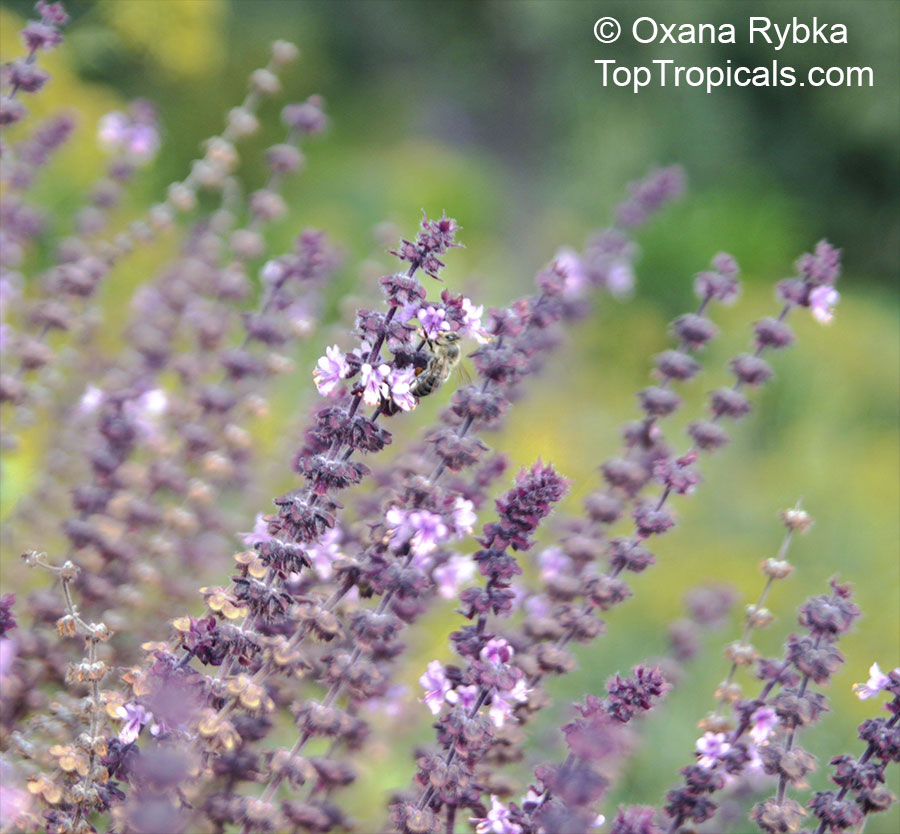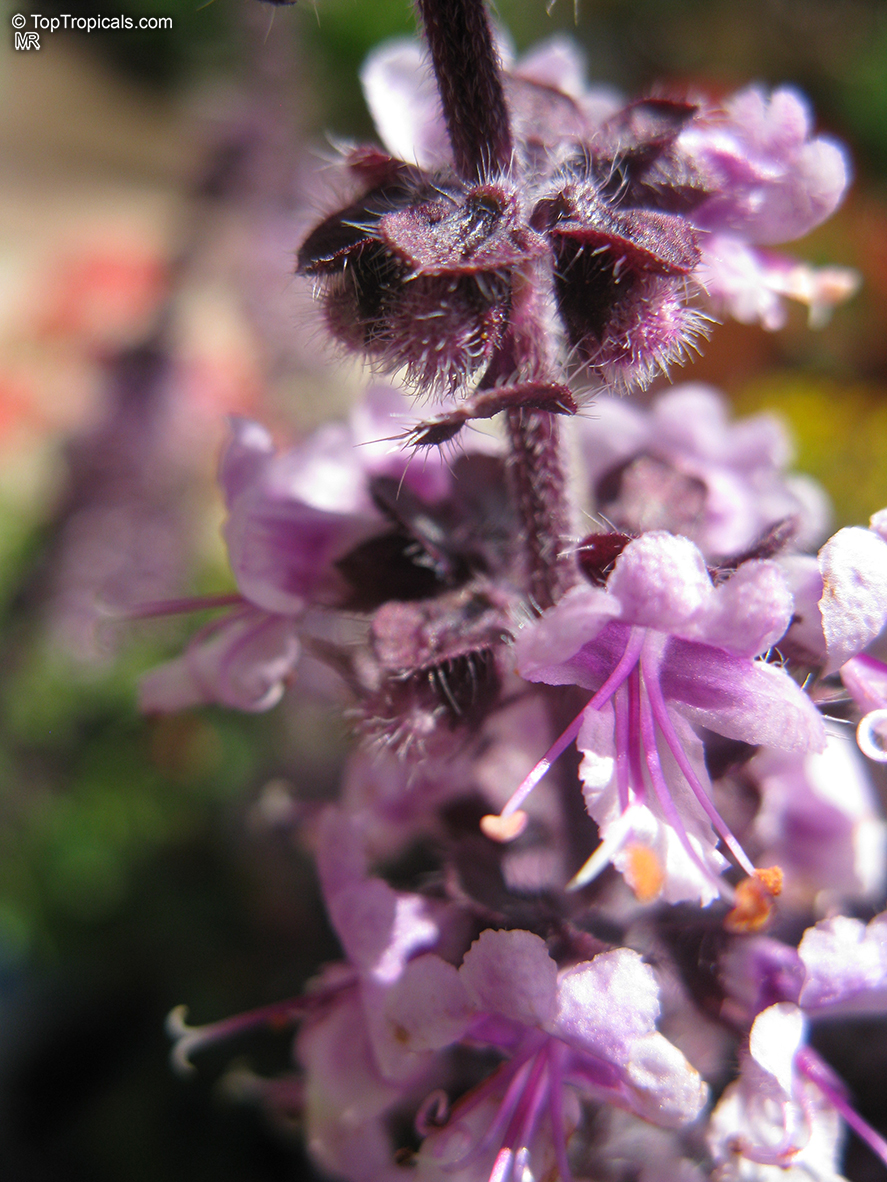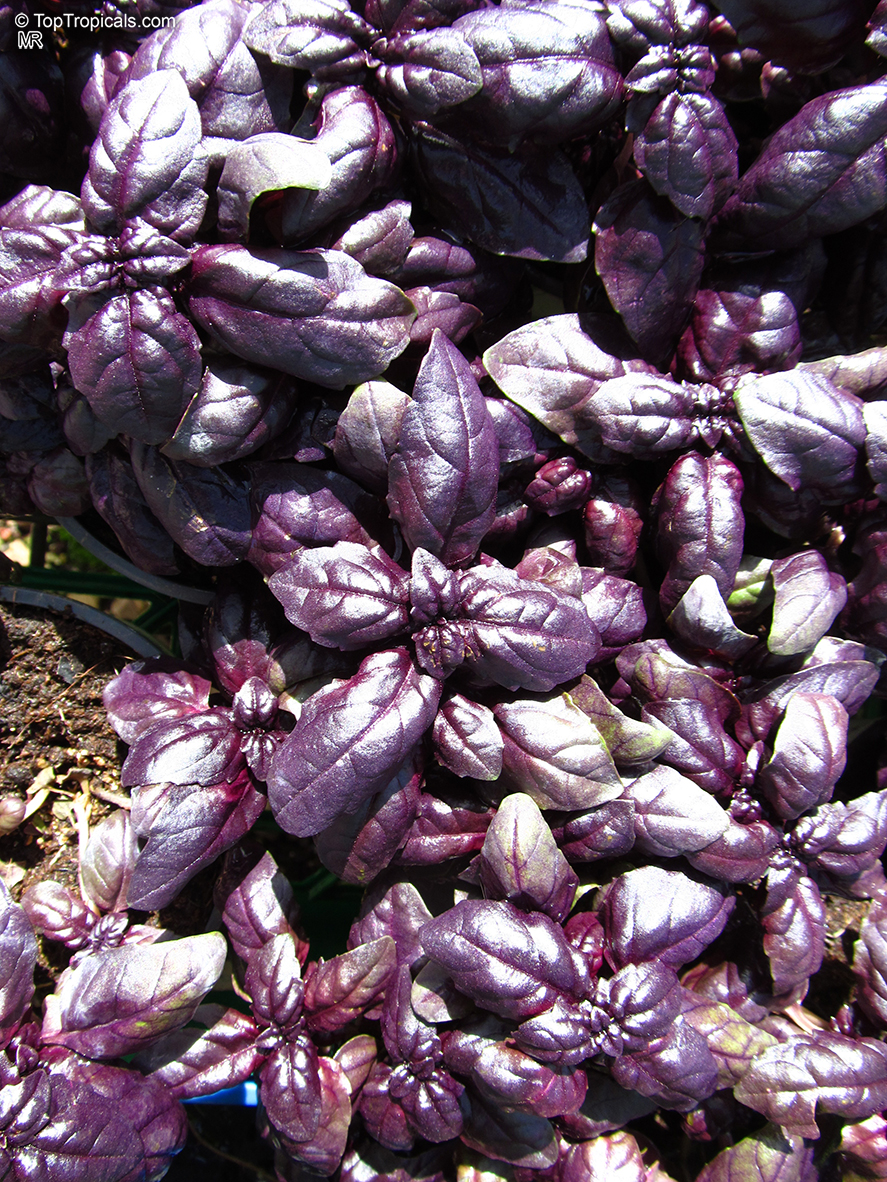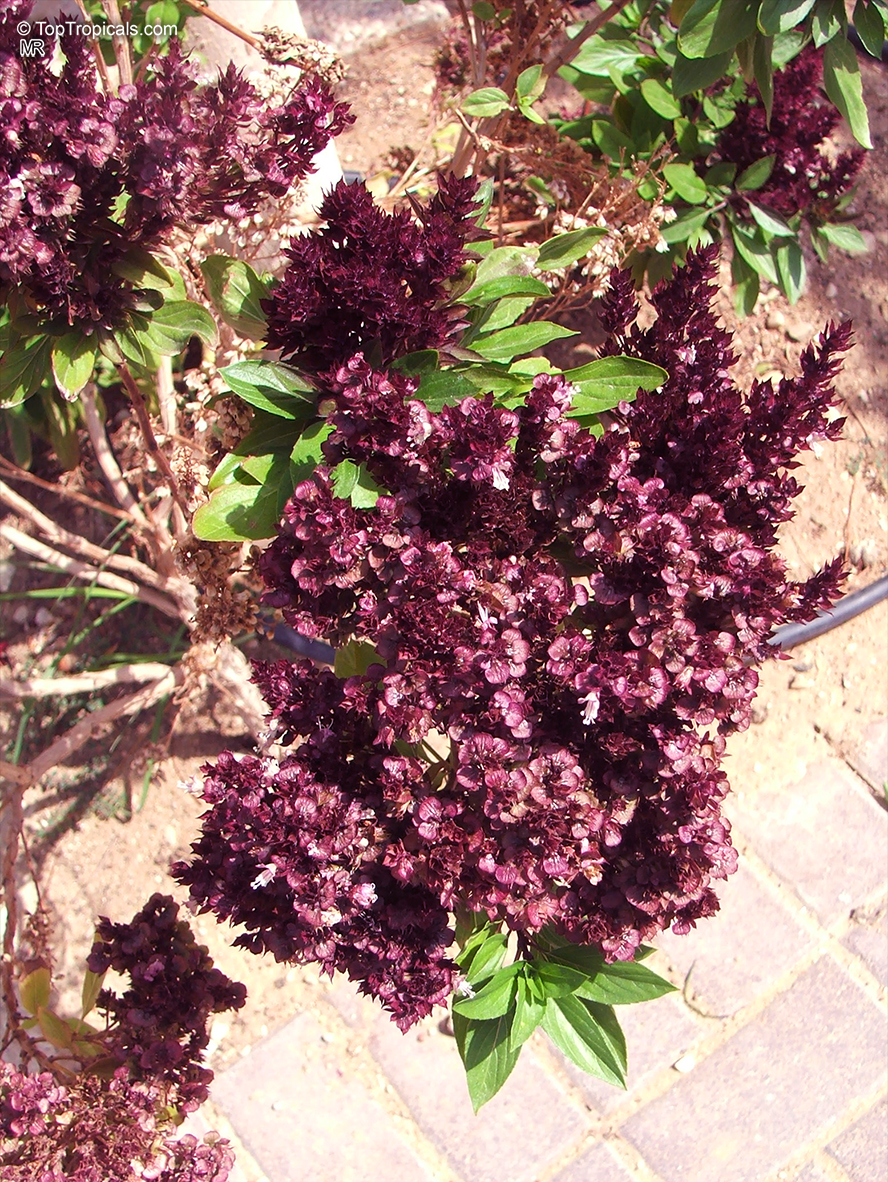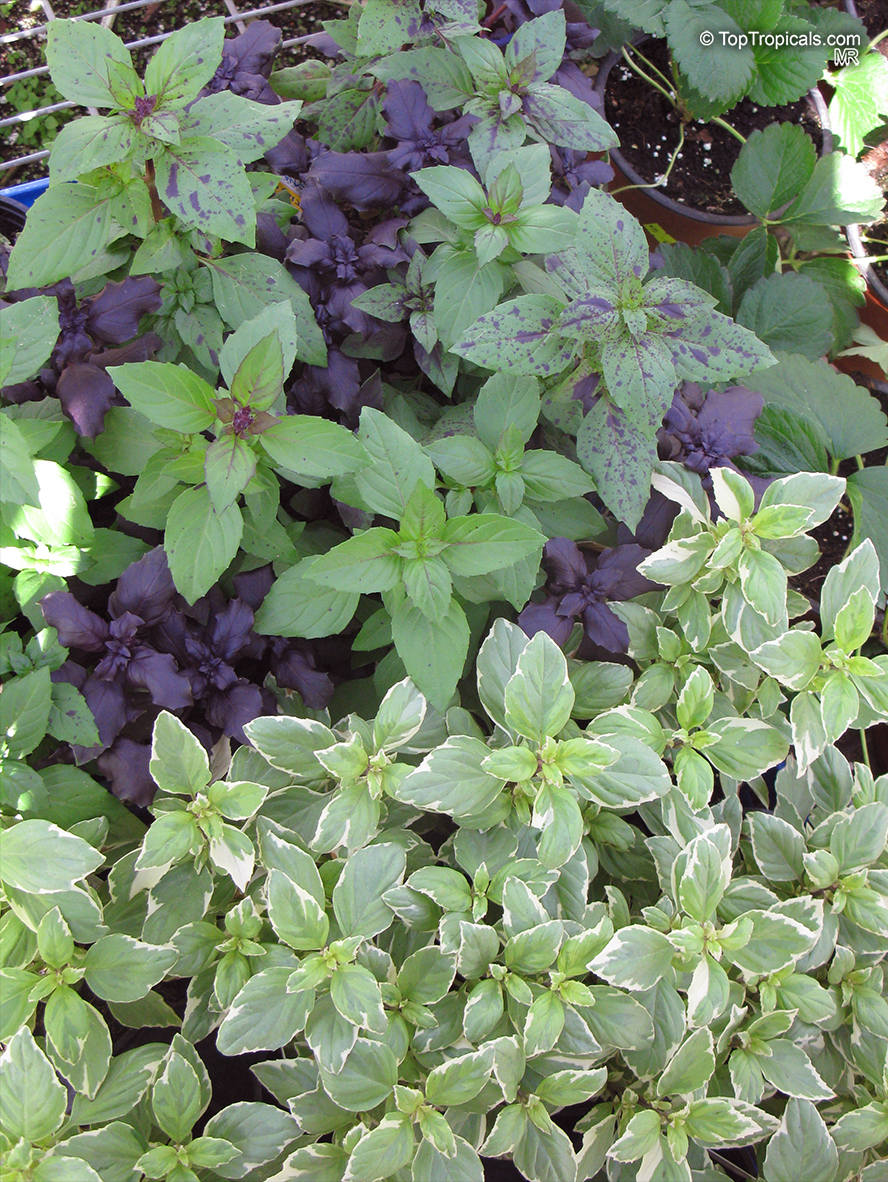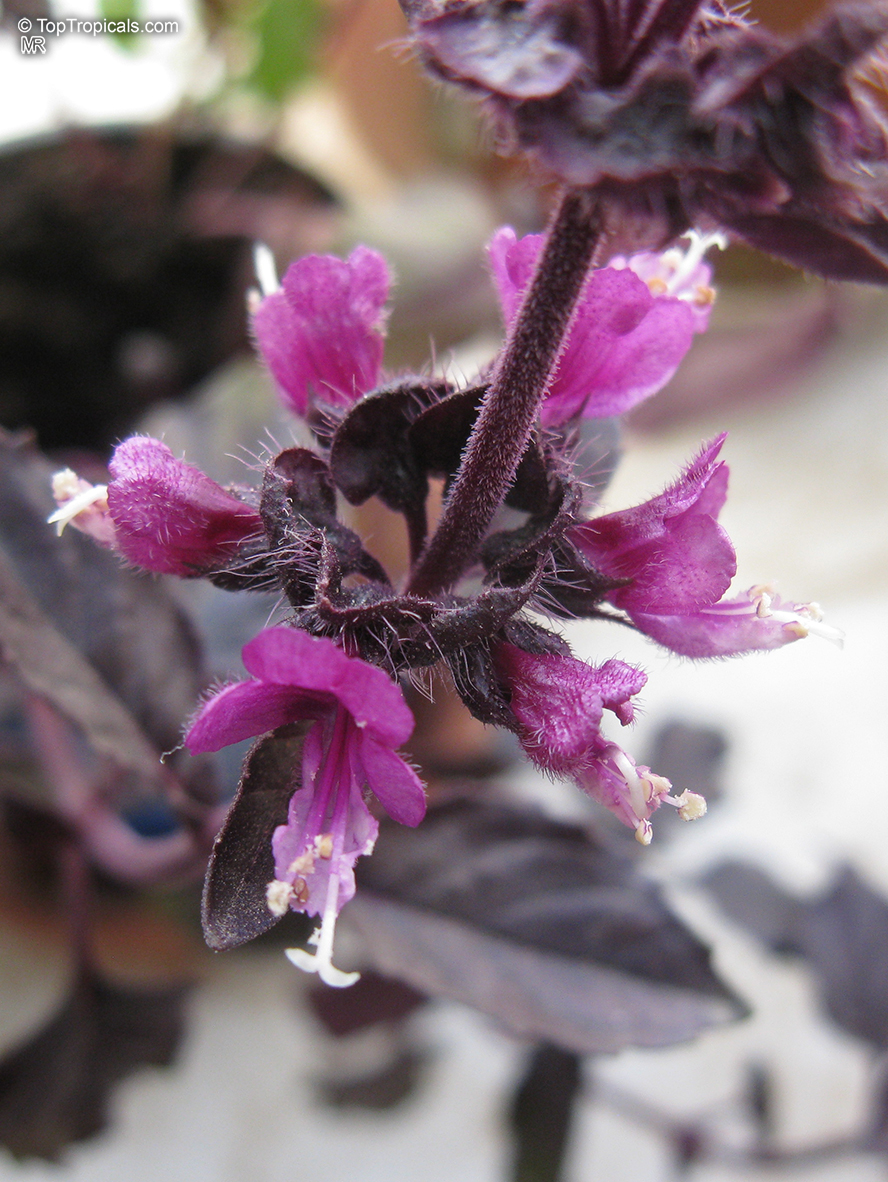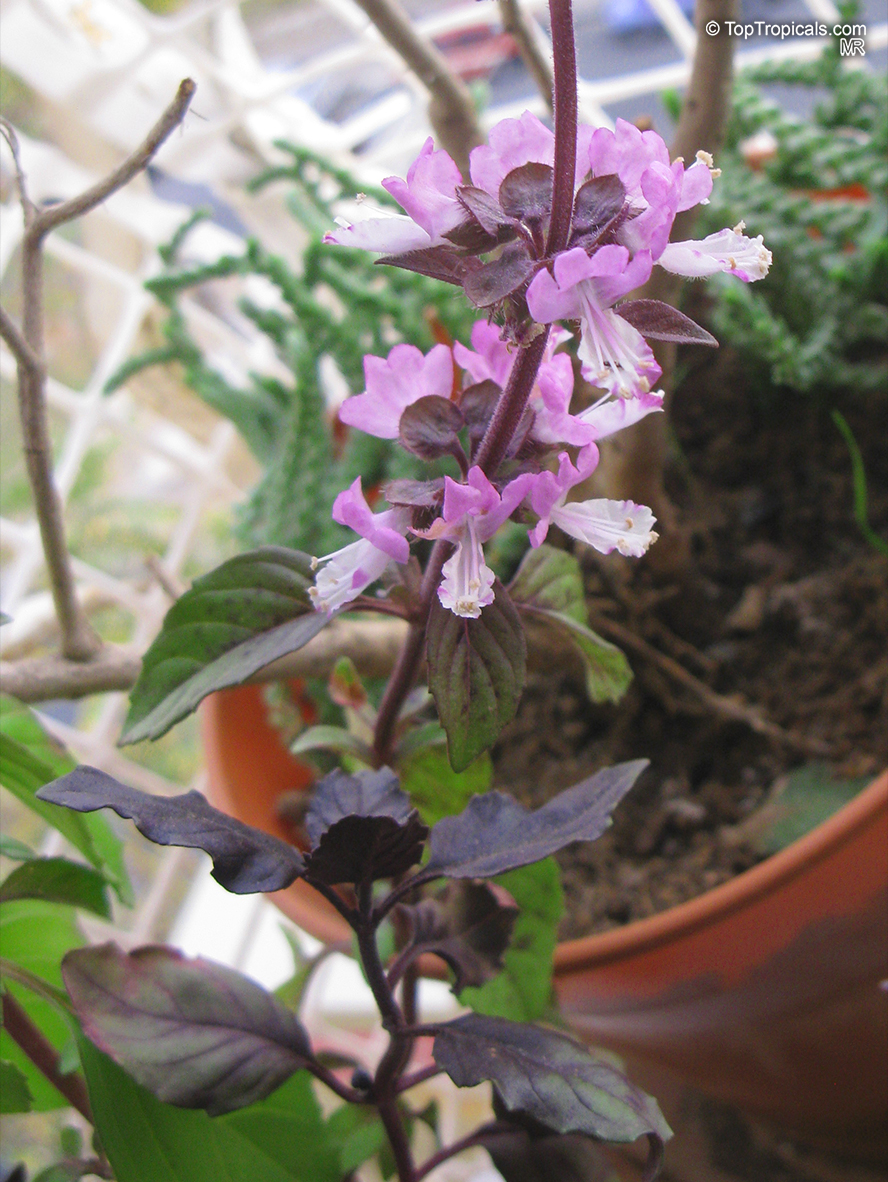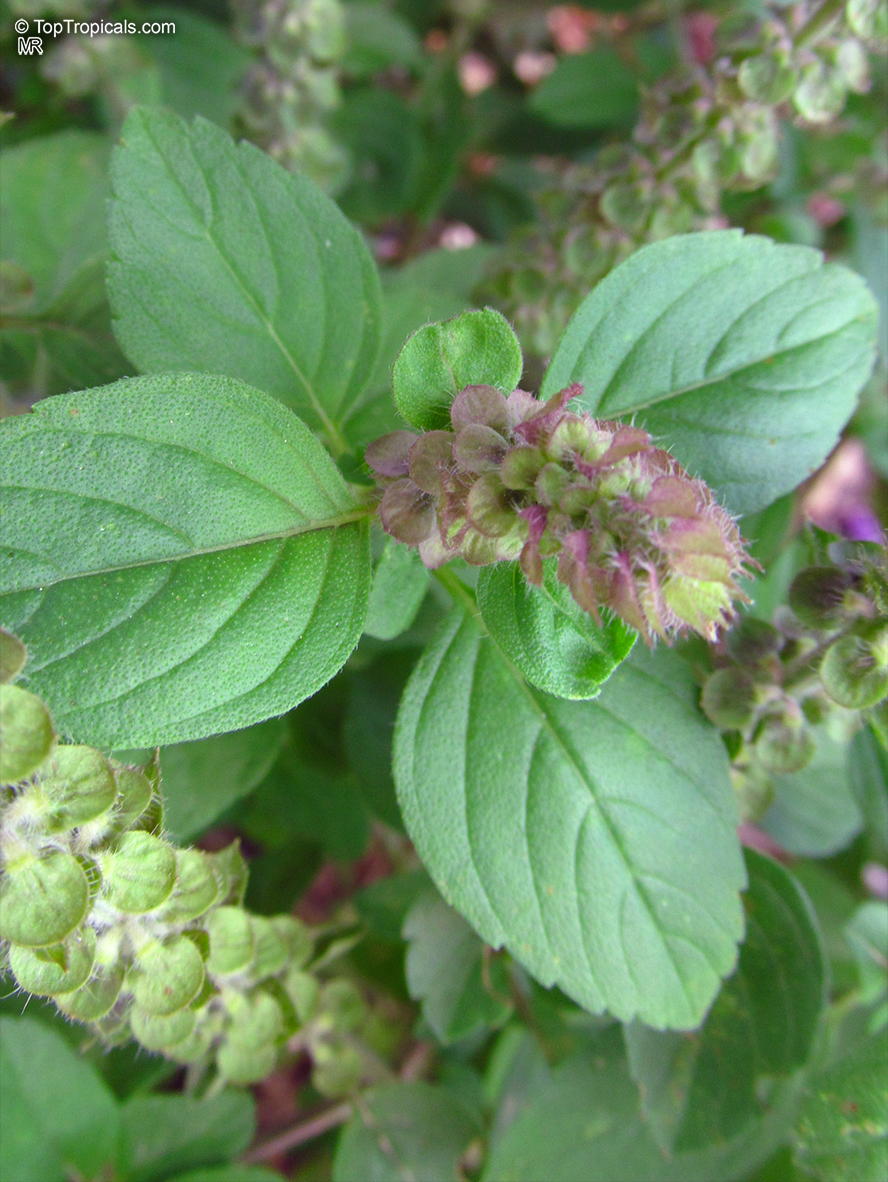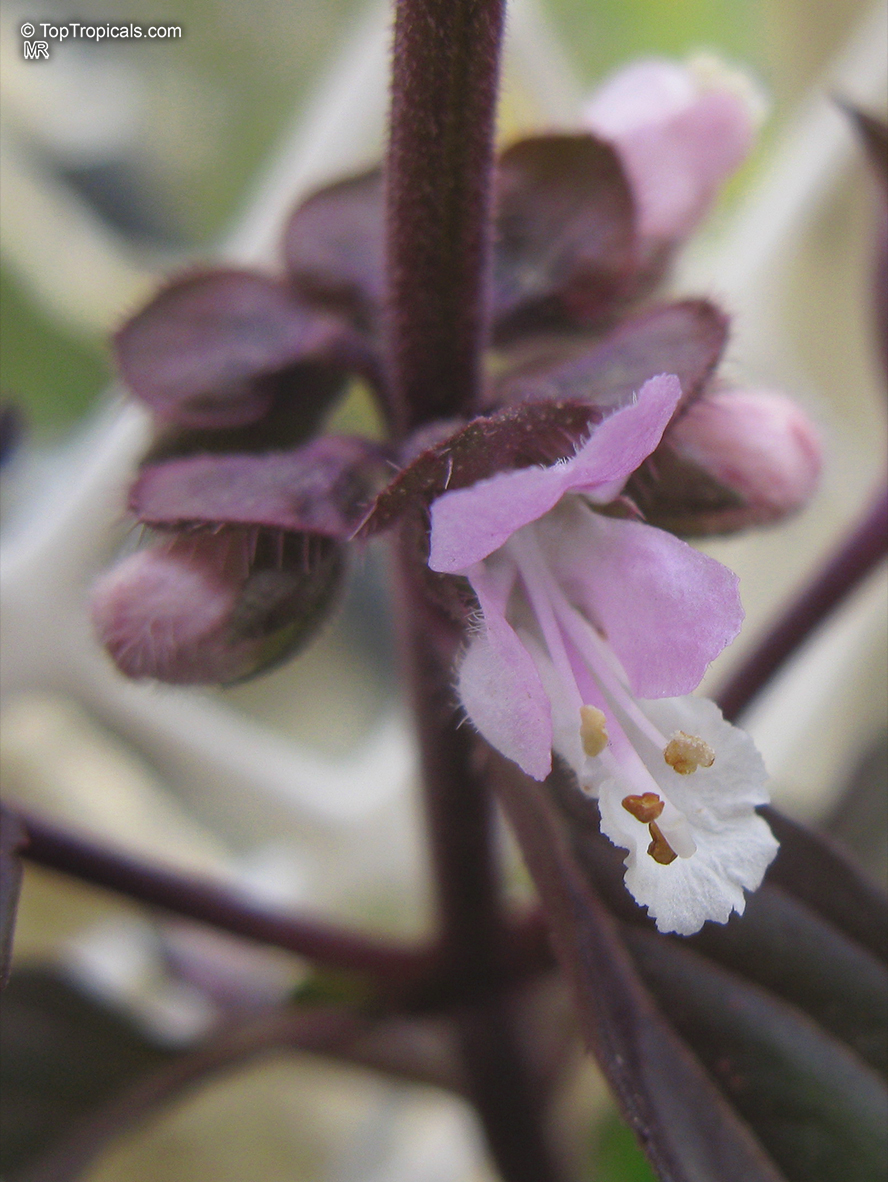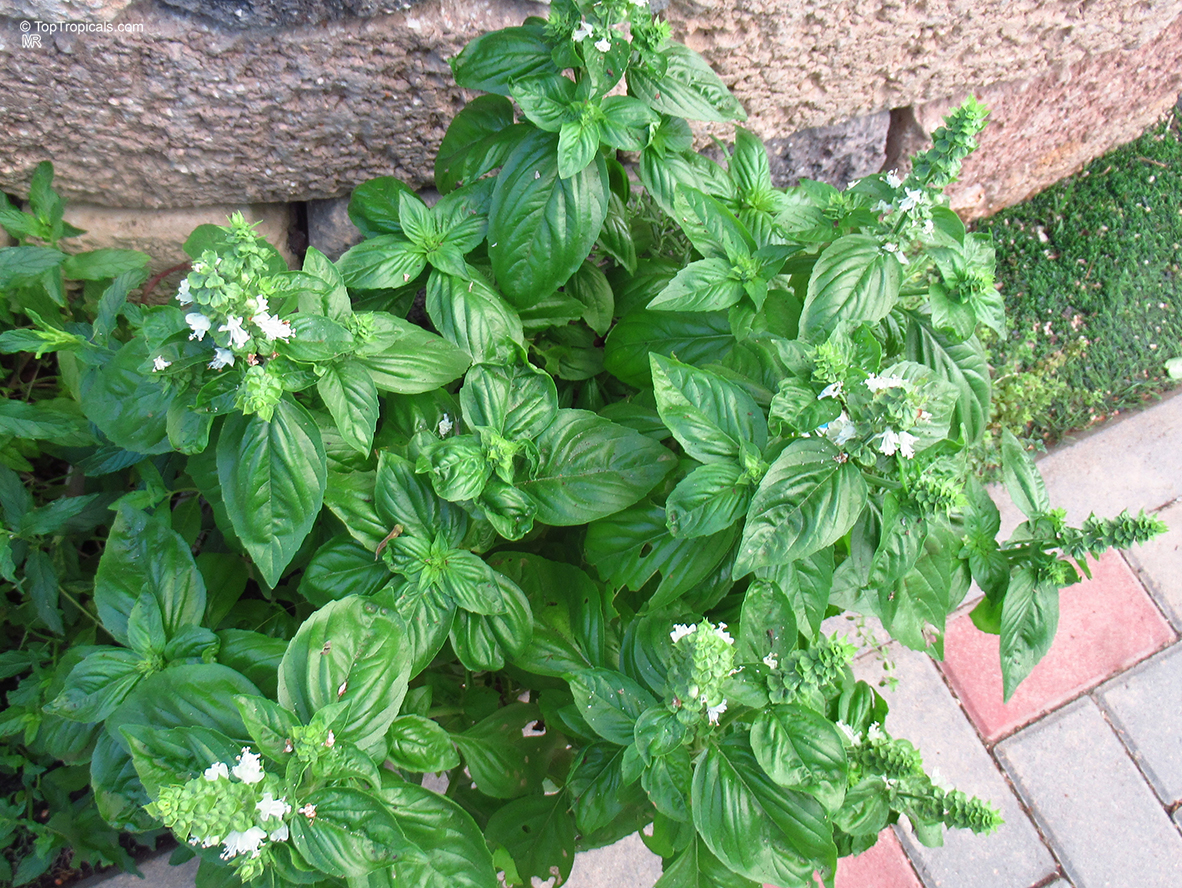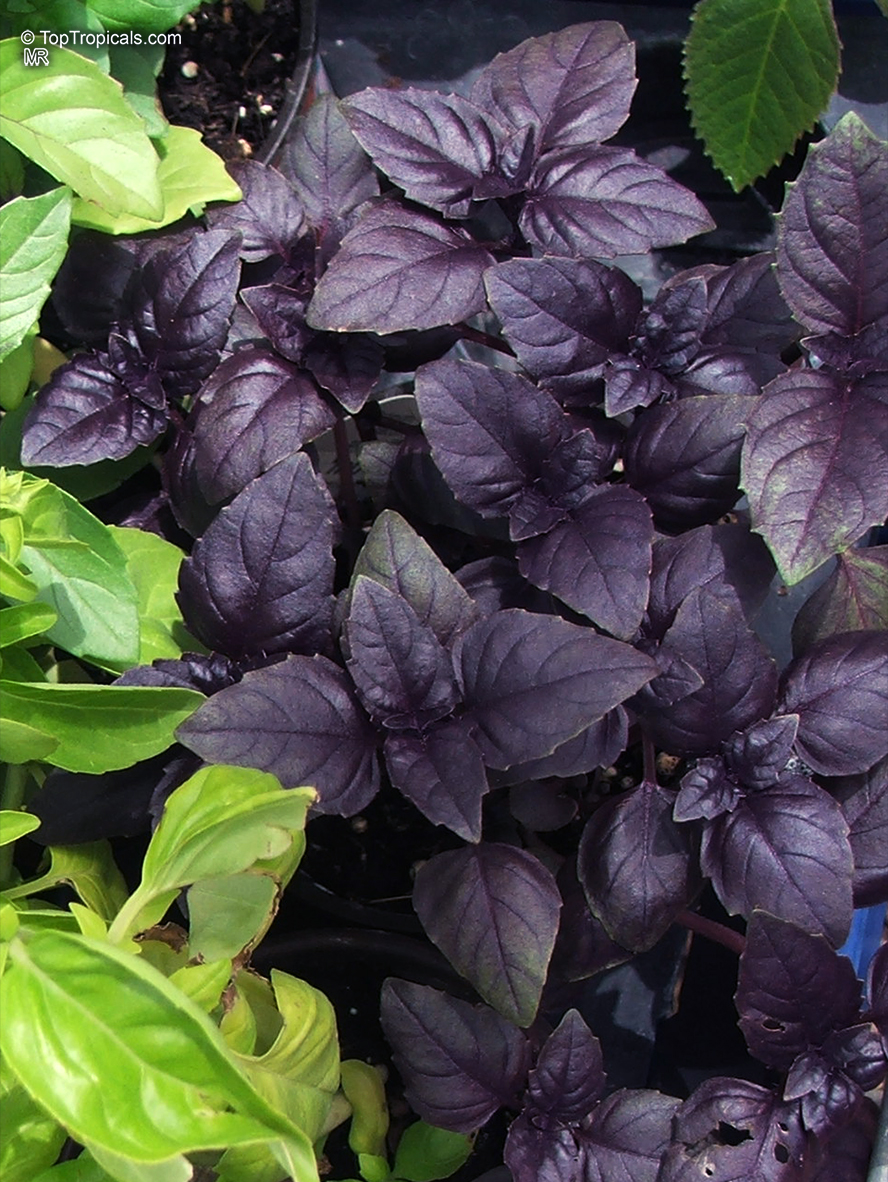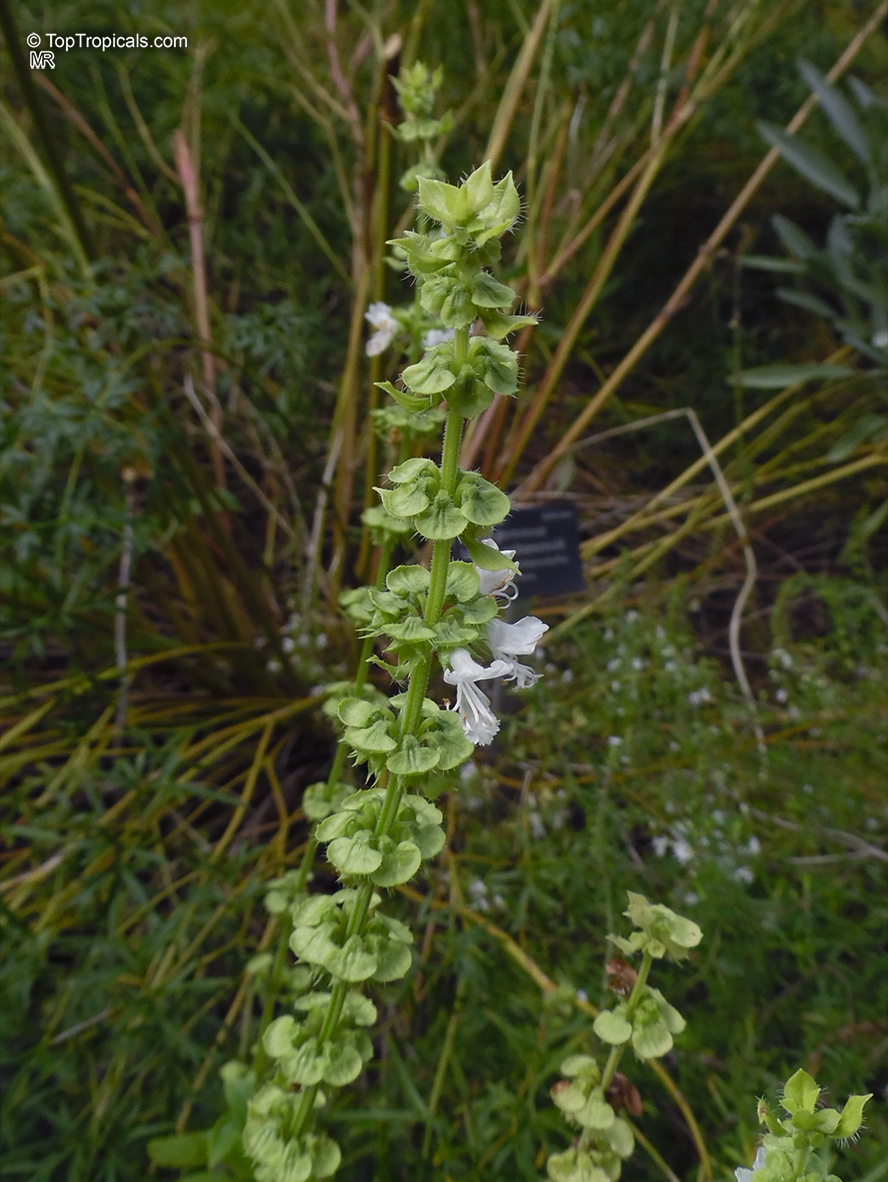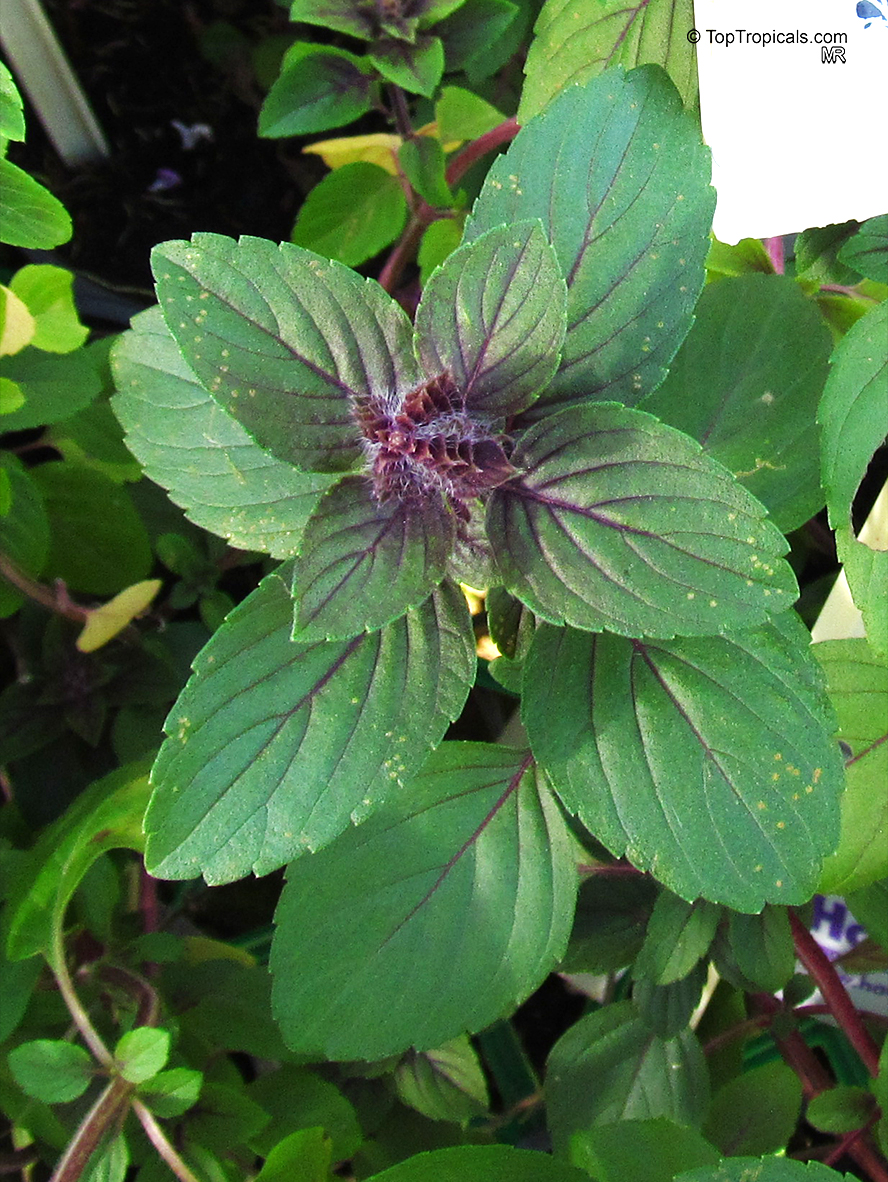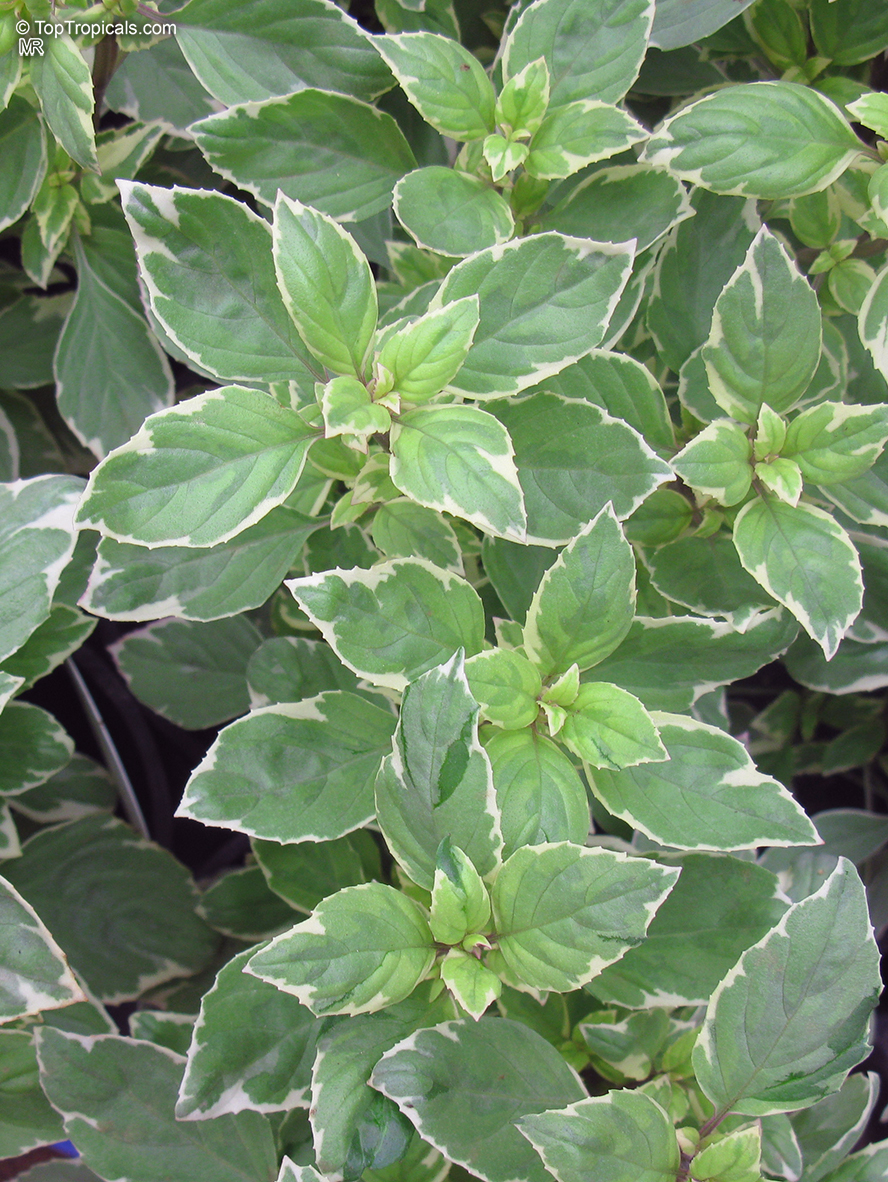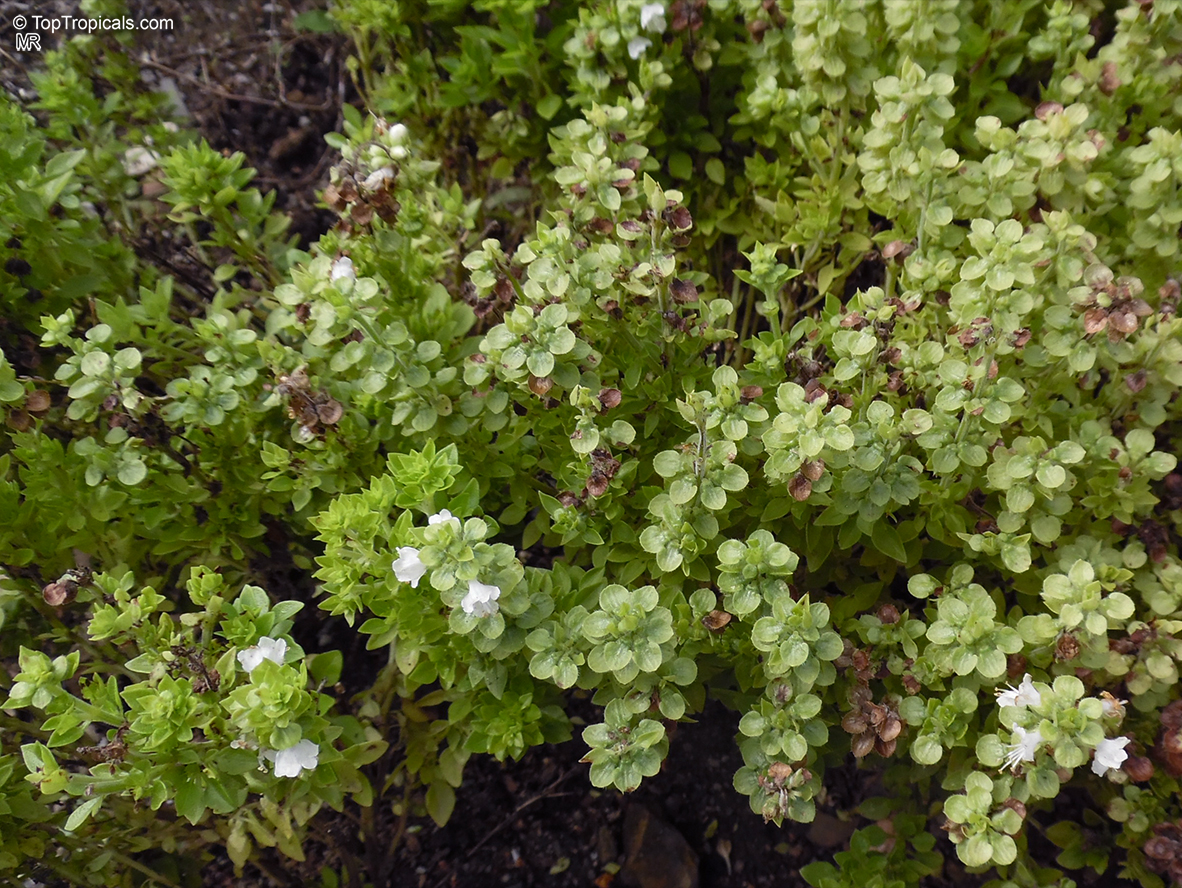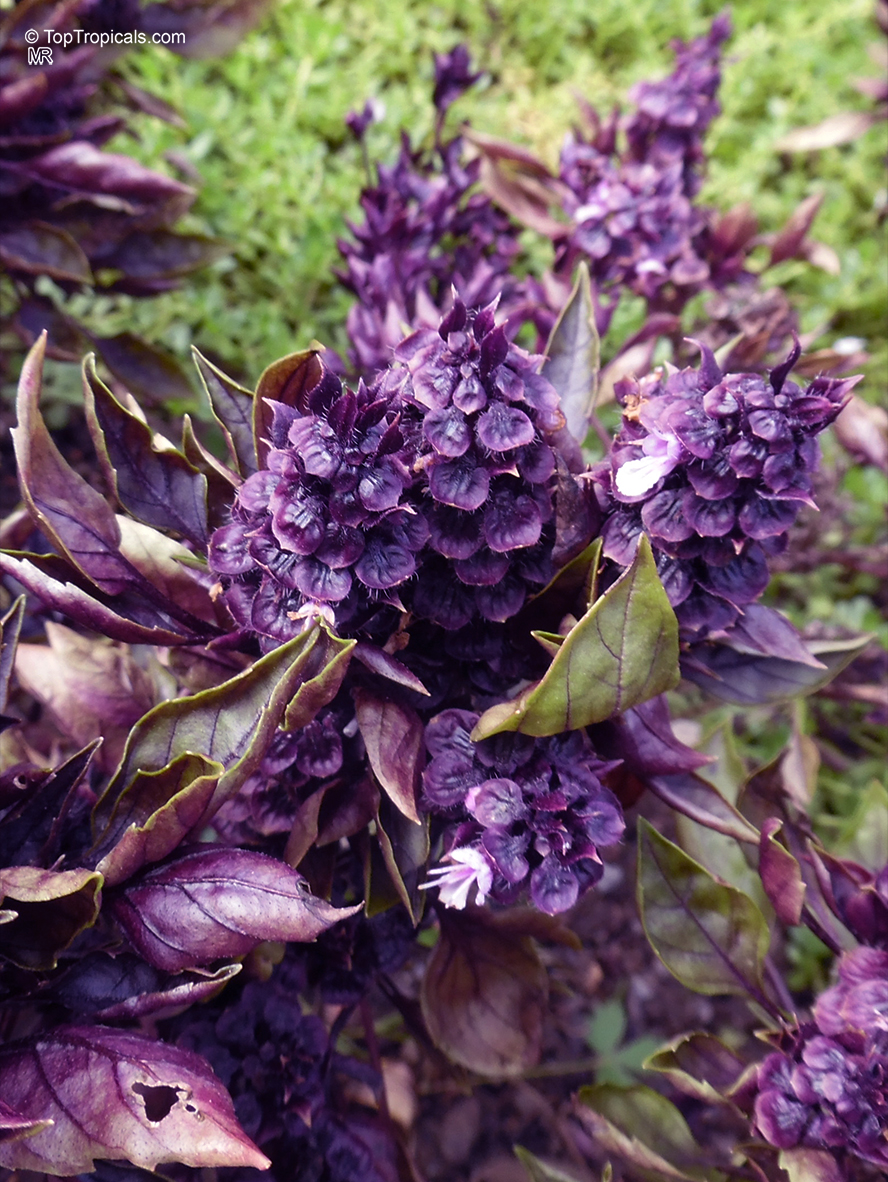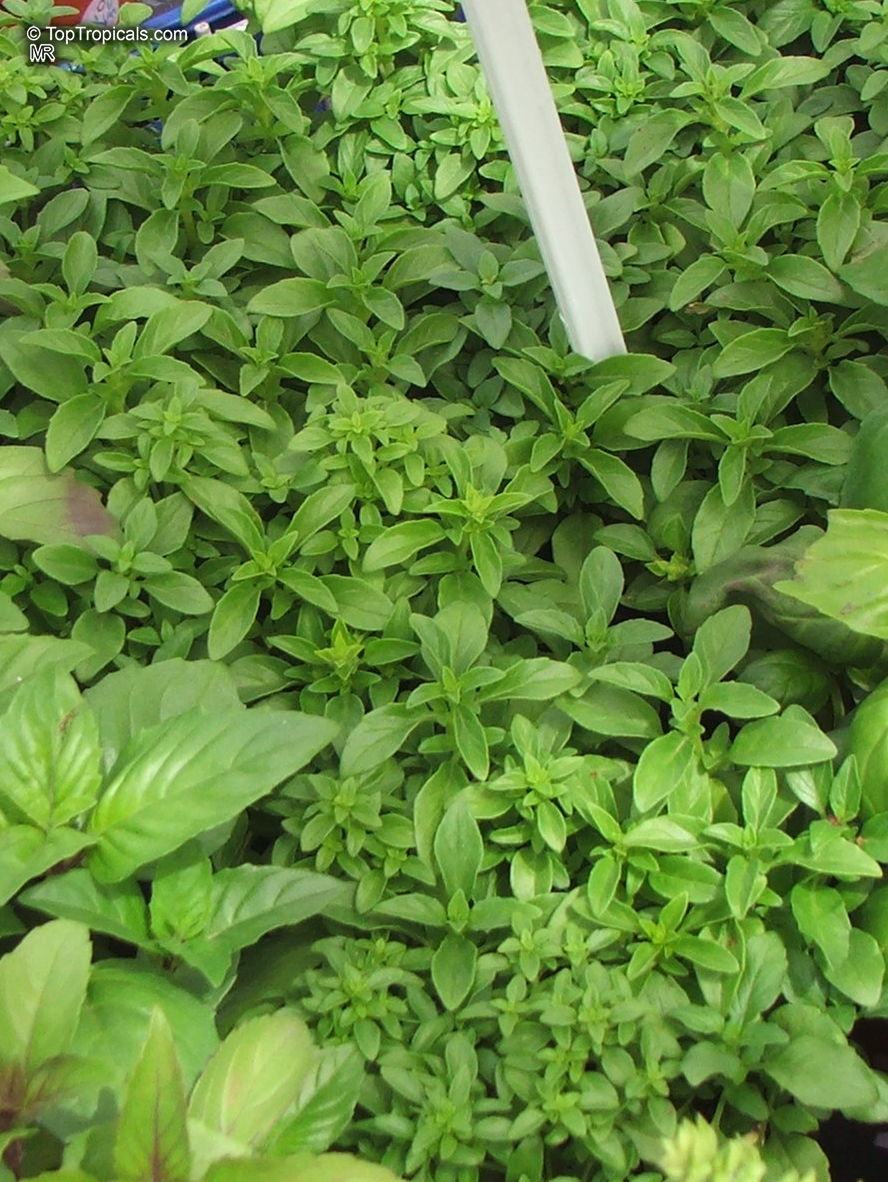Ocimum basilicum
Basilie, Basil, Sweet Basil, Holy Basil, Tulsi PlantFamily: Lamiaceae
Origin: Asia, Africa and Central and Southern America












It's known for adding a distinctive flavor to dishes. Aside from culinary use, basil (Ocimum basilicum) is also used in ethnomedical preparations as a spice or herb, and as a vital component of fragrant cosmetics and toiletries. Basil grows in sunny or semi-shade conditions and prefers regular watering and moderate soil fertility. It is native to Asia, Africa, Central and South America, and looks like a small bush, usually only getting to be 2-5 feet in height. It has pink, white or off-white flowers that not only look pretty, but are fragrant and attractive to butterflies and hummingbirds.
Grown in USDA Zone 9-11, Ocimum basilicum (Basil) is a popular and versatile small shrub native to many parts of the world. An ancient favorite, it has been called the King of Herbs by ancient Greeks, and is known for its distinct culinary and therapeutic uses.
Basil is easy to grow in well-drained soil, and needs full to semi-shade sunlight, regular watering and moderate soil fertility. For best results, keep the roots of the plant covered in mulch. Basil is a tender annual, so it should be planted in pots for easy transport in cold regions, and should never be exposed to frost. If not frosted, basil can stay alive for two years. With a little extra care, you can also grow basil from seed.
Basil offers a variety of uses in different foods and cultures, from Mediterranean and Italian dishes to Thai cooking. In addition to adding flavor to foods, it can also be used in ethnomedical preparations as a spice or herb, and as a vital ingredient in fragrant cosmetics and toiletries. It is also said to attract butterflies and hummingbirds, thanks to its pink, white or off-white flowers.
Similar plants:
